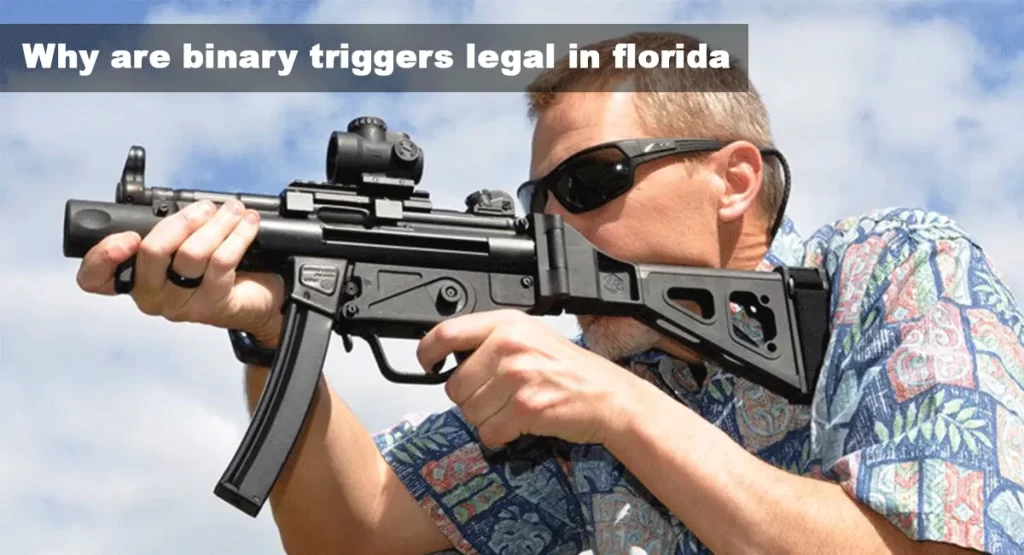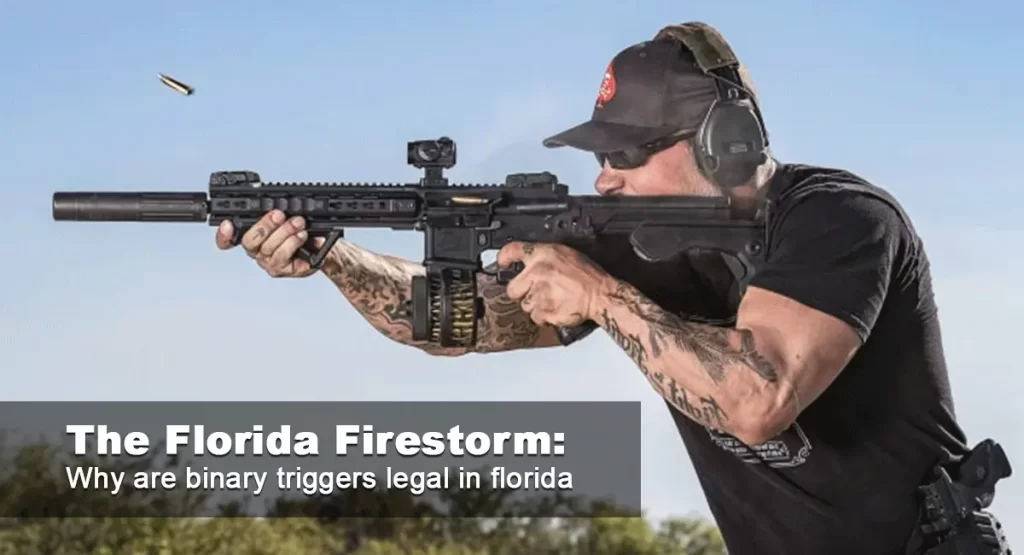In the ever-evolving world of firearms, binary triggers have sparked heated debate. These specialized triggers allow a semi-automatic weapon to fire a bullet with a single pull and another with the trigger’s release, essentially doubling the rate of fire. While some states have banned binary triggers entirely, Florida remains a curious case where their legality persists. So, why are binary triggers legal in Florida, and what are the arguments surrounding this issue?
Explaining Binary Triggers legal in florida: Function and Controversy
A standard firearm trigger requires one pull to discharge a single bullet. Binary triggers, however, operate differently. Pulling the trigger fires one round, but the trigger doesn’t reset until it’s released completely. This “reset” action then prepares the weapon to fire another bullet with the same trigger release. In essence, it allows for significantly faster firing compared to a traditional semi-automatic trigger.
This increased rate of fire is precisely what has raised concerns. Critics argue that binary triggers effectively convert a semi-automatic weapon into a near-automatic weapon, blurring the lines between legal and potentially dangerous firearms. Mass shootings and gun violence have fueled these concerns, with some arguing that binary triggers make it easier for attackers to inflict more damage in a shorter time.
The Legal Landscape: A State-by-State Approach
The legality of binary triggers varies considerably across the United States. Some states, like California and New York, have explicitly banned their sale and possession. Others haven’t addressed them specifically, leaving their legality in a gray area. Florida falls into this latter category.
There’s no explicit mention of binary triggers in Florida’s firearm laws. The main legislation governing firearms in the state, Florida Statute 790.16, focuses on regulating “machine guns.” Federal law defines a machine gun as a firearm capable of discharging multiple rounds “automatically” with a single pull of the trigger. Binary triggers, by design, require a separate pull and release for each shot, potentially placing them outside the legal definition of a machine gun in Florida.
However, this lack of a specific ban on binary triggers has been a point of contention. Following mass shootings, some Florida legislators have proposed bills to outlaw binary triggers, but these attempts haven’t garnered enough support to pass.
Arguments for Legality: Examining the Second Amendment
Proponents of binary trigger legality often cite the Second Amendment to the United States Constitution, which guarantees the right to bear arms. They argue that binary triggers are simply modifications to existing semi-automatic firearms, which are legal to own in Florida. They view them as a technological advancement for firearms enthusiasts who enjoy faster rates of fire for recreational shooting or self-defense purposes.
Additionally, some proponents argue that binary triggers don’t necessarily translate to deadlier outcomes. They point out that a skilled shooter can achieve similar firing rates with a traditional semi-automatic weapon through rapid trigger pulls. They emphasize the importance of responsible gun ownership and proper training, regardless of the trigger type used.
Arguments Against Legality: Prioritizing Public Safety
Opponents of binary triggers prioritize public safety concerns. They argue that the increased rate of fire offered by binary triggers makes them especially dangerous in the wrong hands. The potential for accidental discharge or misuse in a high-pressure situation is a major concern. Opponents also highlight the psychological impact of such rapid fire – the ability to unleash a barrage of bullets quickly could lead to poorer decision-making in a self-defense scenario.
Furthermore, opponents argue that the ease of use of binary triggers, compared to achieving similar firing rates with traditional methods, poses a threat. They believe it lowers the skill barrier for inflicting significant damage, potentially putting bystanders or innocent people at risk.
The Ongoing Debate: A Balancing Act

The legality of binary triggers in Florida remains a contentious issue. On one hand, gun rights advocates see them as a legal modification for responsible gun owners. On the other hand, public safety advocates view them as a potential danger that could exacerbate gun violence.
The lack of a clear legal definition for binary triggers in Florida creates a gray area. This ambiguity leaves room for debate and potential legal challenges in the future. Ultimately, the question of whether or not to ban binary triggers in Florida remains a complex issue with no easy answers. It requires careful consideration of Second Amendment rights, public safety concerns, and the potential impact on gun violence.
Here are some additional points to consider:
- The Role of Law Enforcement: Law enforcement agencies play a crucial role in monitoring gun violence and identifying trends. Their experience and insights can be valuable in shaping future legislation regarding binary triggers.
- Technological Advancements: Firearm technology is constantly evolving. As new trigger modifications emerge, Florida lawmakers may need to revisit the legal landscape to ensure responsible gun ownership practices.
- Public Awareness and Education: Educating the public about the risks and responsibilities associated with binary triggers is essential. By raising awareness about the potential dangers and proper usage of these devices, communities can foster a culture of safety and accountability among firearm owners.

